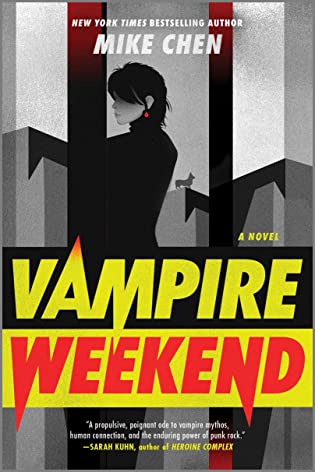 Vampire Weekend by Mike Chen
Vampire Weekend by Mike Chen Format: eARC
Source: supplied by publisher via Edelweiss
Formats available: hardcover, paperback, ebook, audiobook
Genres: fantasy, horror, paranormal, vampires
Pages: 368
Published by Mira on January 31, 2023
Purchasing Info: Author's Website, Publisher's Website, Amazon, Barnes & Noble, Kobo, Bookshop.org, Better World Books
Goodreads
Being a vampire is far from glamorous...but it can be pretty punk rock.
Everything you've heard about vampires is a lie. They can't fly. No murders allowed (the community hates that). And turning into a bat? Completely ridiculous. In fact, vampire life is really just a lot of blood bags and night jobs. For Louise Chao, it's also lonely, since she swore off family ages ago.
At least she's gone to decades of punk rock shows. And if she can join a band of her own (while keeping her...situation under wraps), maybe she'll finally feel like she belongs, too.
Then a long-lost teenage relative shows up at her door. Whether it's Ian's love of music or his bad attitude, for the first time in ages, Louise feels a connection.
But as Ian uncovers Louise's true identity, things get dangerous--especially when he asks her for the ultimate favor. One that goes beyond just family...one that might just change everything vampires know about life and death forever.
My Review:
Vampires don’t sparkle. Everybody knows that’s a complete fabrication. Totally fictional. Also slightly ridiculous.
As Louise Chao has discovered over the decades, most of the things that people thought they knew about vampires are every bit as mythical as that sparkle. And Louise ought to know. She’s been a vampire for those same decades. For her, being a vampire isn’t remotely glamorous, nor is she accumulating wealth. She certainly doesn’t have super-strength or any other super-senses.
She’s absolutely not draining innocent – or even not so innocent – victims dry every night. Not only is that frowned upon – with extreme prejudice – by the vampire community, but honestly it’s not nearly as easy as it looks to bite someone in the carotid artery. The angles are just all wrong and the fangs aren’t nearly as sharp as fiction would have one believe.
For Louise, being a vampire is an endless search for night jobs to pay the bills while scrounging for safe sources of blood to stave off starvation. Her only solace is the best dog in the world, Lola.
Her best human friend died in a car crash just before COVID really sunk its teeth into the human population and psyche. Her Aunt Laura, the only family who ever accepted her as her punk rock, non-conforming self, died years ago and left her the house they shared in San Francisco.
It’s a lonely life. When the local blood supplies start running low, literal starvation is just a metaphor – although a gnawing, achingly, empty metaphor – for the starvation of the heart and spirit that Louise is already living in.
Until her self-imposed isolation is invaded by her long-lost family. Two of them. A middle-aged man who seems vaguely familiar, and a teenage boy who reminds Louise so very strikingly of the young, rebellious music loving rebel she used to be. And deep in her bruised heart, still very much is.
Ian needs a refuge from his mother’s impending death that will give him just a bit more distance and perspective than the bad attitude he’s currently fronting as his defense against the world. Louise isn’t able to admit it, even to herself, but she needs somebody to connect her to the world that might otherwise pass her by. She needs more than just a shitty job and a refrigerator full of blood bags.
All she has to do is let herself connect. To this teenager who needs a safe place to be himself. To the self that she left behind. And to the community that is willing to make her life a whole lot easier – and just a bit closer to some of those powers she thought were myths – if she’ll just let all of them in.
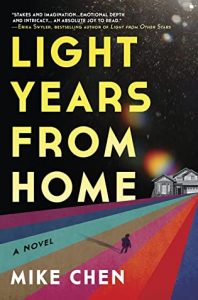 Escape Rating B+: Louise’s journey in Vampire Weekend is a combination of “no matter where you go, there you are” and “who do you want to be when you grow up?” Because Louise hasn’t. Grown up, that is. And that not-grown-up self has been dragging behind her and holding her back for decades. When Ian drops into her life – and all the landmines in her past that he unwittingly brings with him – she’s forced to reckon with who she once was and the baggage she’s still carrying from that person.
Escape Rating B+: Louise’s journey in Vampire Weekend is a combination of “no matter where you go, there you are” and “who do you want to be when you grow up?” Because Louise hasn’t. Grown up, that is. And that not-grown-up self has been dragging behind her and holding her back for decades. When Ian drops into her life – and all the landmines in her past that he unwittingly brings with him – she’s forced to reckon with who she once was and the baggage she’s still carrying from that person.
(One thing about all those vampire myths to get out of the way before anyone gets skeeved about Louise’s relationship with Ian. Vampires in Louise’s world are all asexual. The genetic and biological change of human to vampire kills off all the chemistry that creates both arousal and sexual gratification. Another vampire myth shot down.)
What makes Louise’s journey interesting is that her vampiric existence has meant that she hasn’t had to move on from the traumas of her family of origin. She hasn’t grown up because she hasn’t had to. So everything she took with her from her parent’s house when she left is still festering. When Ian and his grandfather drop into her life, because they’re part of the family that rejected both her and her beloved Aunt Laura, she has to finally process her shit because Ian is tangential to it and his grandfather is a bigger part of it than she even recognizes.
While the heart of this story is Louise’s growing relationship with Ian and her reconciliation with her own past, there’s another story woven into its edges that moves toward center stage as it progresses.
When there are vampires, it seems as if there are always politics and this story is no exception. At first the larger vampire community is on the periphery of Louise’s life – and that’s where she wants them to stay. But the blood supply is suddenly dwindling and she needs that network of support to locate supplies. And they need her – but not in any of the ways that she is worried about or that the reader expects.
That political angle felt a bit tacked on, to the point where its resolution seemed like a bit of a deus ex machina for the issues that brought Ian into Louise’s life in the first place. Not badly, and it made a certain kind of sense for the resolution of the whole story, but it just wasn’t as solid as Louise’s journey and Ian’s impending grief – although it does eventually tie into both.
This is not the first time that vampires have been into music, and not even the first story mixing vampires with some variety of rock and roll. The book The Vampire Lestat features the titular vampire fronting a rock band. And the WVMP series (starts with Wicked Game) by Jeri Smith-Ready (which took me forever to dig out of memory) is all about a radio station where the DJs are vampires who only play the music of the era when they were turned.
There is also a real band named Vampire Weekend. This isn’t about them, although there are a couple of in-jokes that refer to the real band, just as there are in-jokes featuring Louise’s beloved punk rock and rock music in general. I would imagine that an appreciation of those jokes and knowledge of that scene in general would add just that little something extra to the reader’s appreciation of the story. Howsomever, as someone who was not into punk in particular the story is still terrific. I’m not sure you need to be a fan of any genre of music in particular, as the heartbeat of the story is about loving music, particularly live performances, and needing it to be a part of your life. YMMV.
In the end, Vampire Weekend was a delightful surprise. It wasn’t any of the things I was expecting, much in the way that the author’s Light Years From Home wasn’t quite any of the things that I expected when I picked it up (and loved it!) either. But both stories are about families and making peace with them as well as yourself. Both have just the right touch of bittersweetness to tug at the heartstrings. And both are are terrific reads!
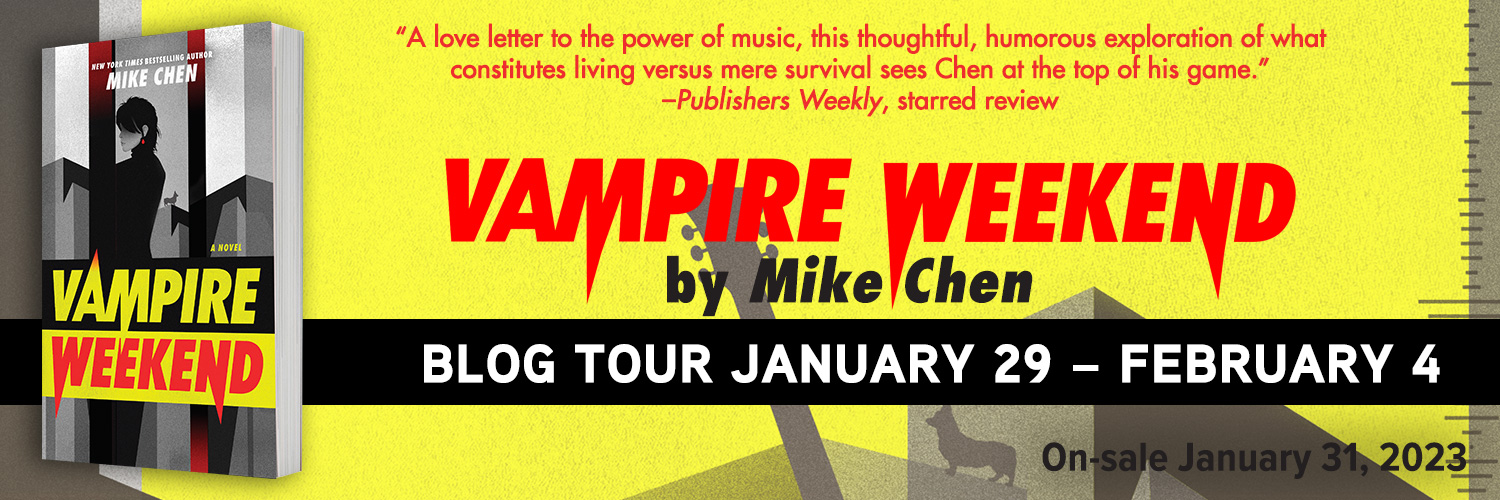

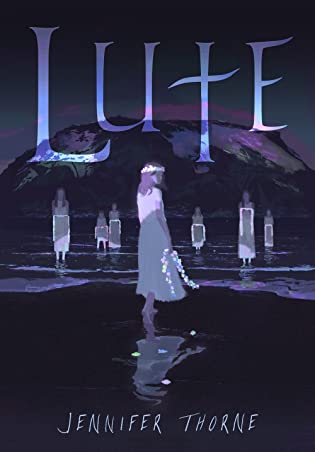 Lute by
Lute by 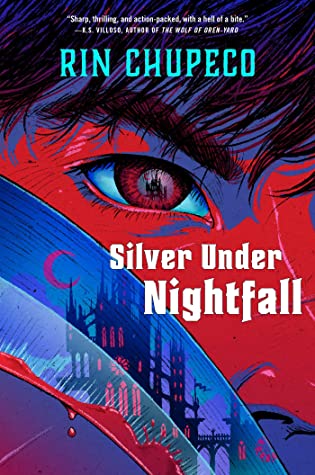 Silver Under Nightfall by
Silver Under Nightfall by 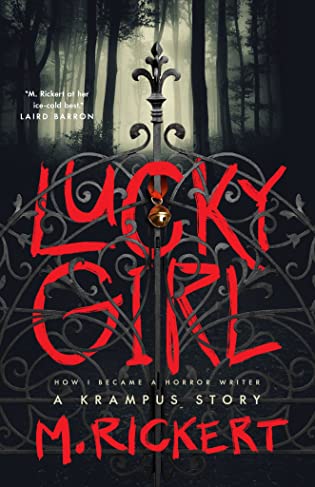 Lucky Girl: How I Became A Horror Writer: A Krampus Story by
Lucky Girl: How I Became A Horror Writer: A Krampus Story by 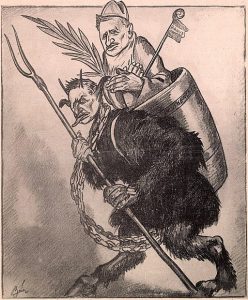
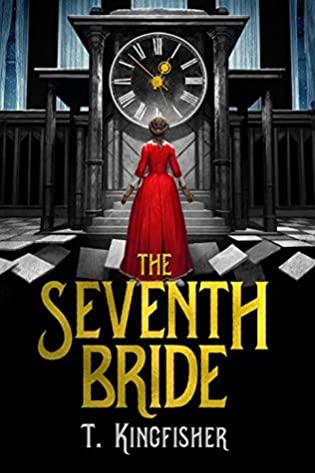 The Seventh Bride by
The Seventh Bride by 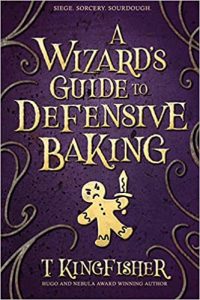 Just like Mona in
Just like Mona in 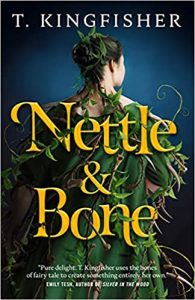 It also reads like a bit of a ‘dress-rehearsal’ for
It also reads like a bit of a ‘dress-rehearsal’ for 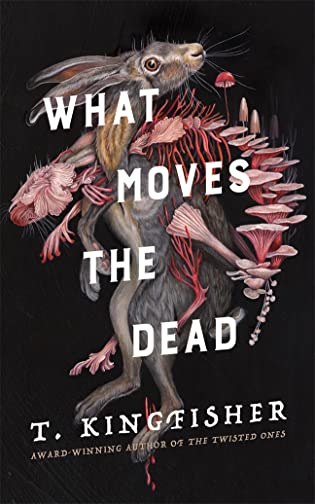 What Moves the Dead by
What Moves the Dead by 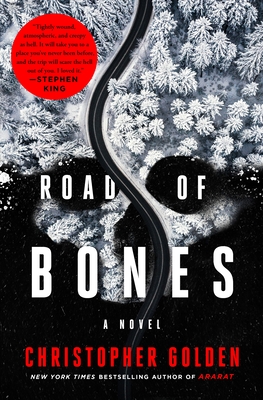 Road of Bones by
Road of Bones by 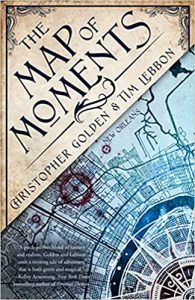 Escape Rating A-: I was willing to take this chilling drive into horror because of the author. Christopher Golden, along with Tim Lebbon, wrote one of the most haunting post-Katrina New Orleans stories to ever ride that slippery line between fantasy, history, myth and horror in
Escape Rating A-: I was willing to take this chilling drive into horror because of the author. Christopher Golden, along with Tim Lebbon, wrote one of the most haunting post-Katrina New Orleans stories to ever ride that slippery line between fantasy, history, myth and horror in 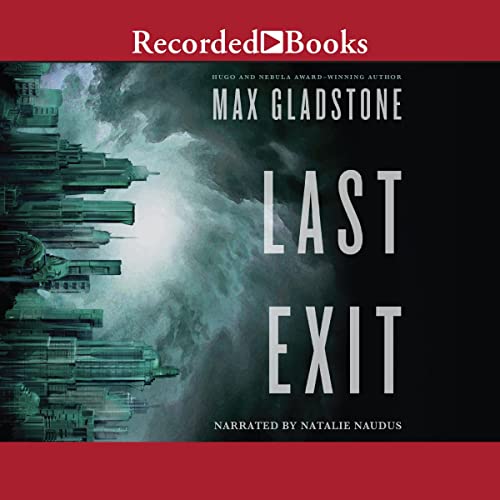 Last Exit by
Last Exit by 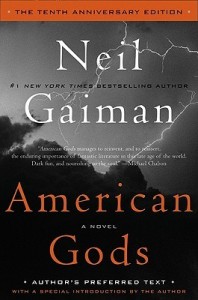 Escape Rating A-: In the end, Last Exit is awesome. But it takes one hell of a long and painful journey to reach that end. Because it starts with all of them not just apart, but in their own separate ways, falling apart. And it ends with all of their demons coming home to roost – and nearly destroying them – as they relive the past and do their damndest to push through to either some kind of future – or some kind of sacrifice to balance out the one they already made when they lost Sal.
Escape Rating A-: In the end, Last Exit is awesome. But it takes one hell of a long and painful journey to reach that end. Because it starts with all of them not just apart, but in their own separate ways, falling apart. And it ends with all of their demons coming home to roost – and nearly destroying them – as they relive the past and do their damndest to push through to either some kind of future – or some kind of sacrifice to balance out the one they already made when they lost Sal.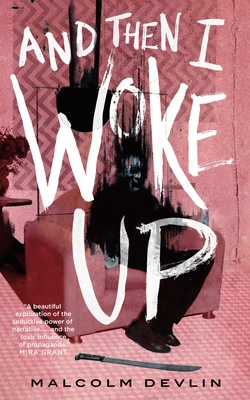 And Then I Woke Up by
And Then I Woke Up by 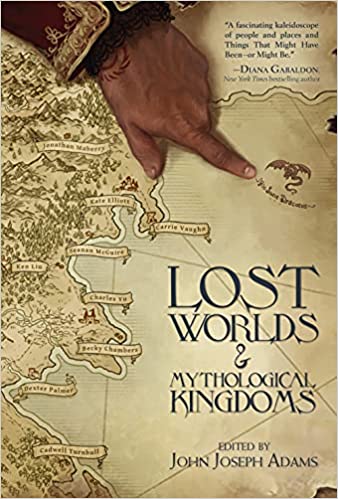 Lost Worlds and Mythological Kingdoms by
Lost Worlds and Mythological Kingdoms by